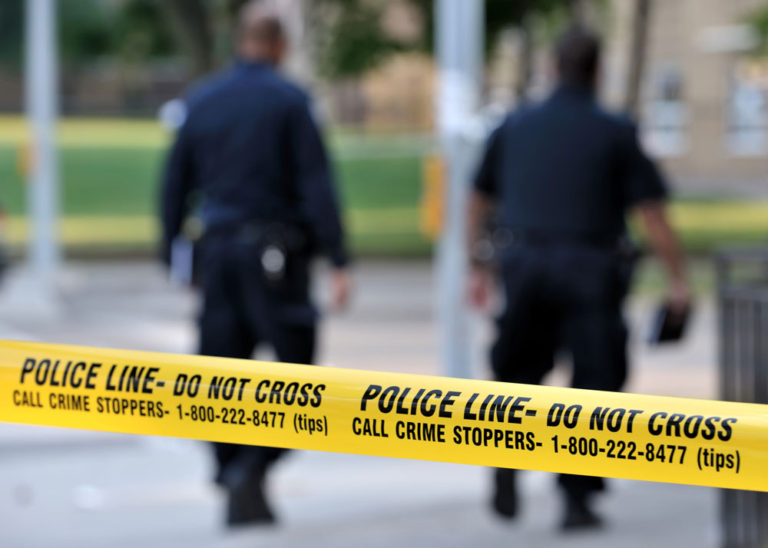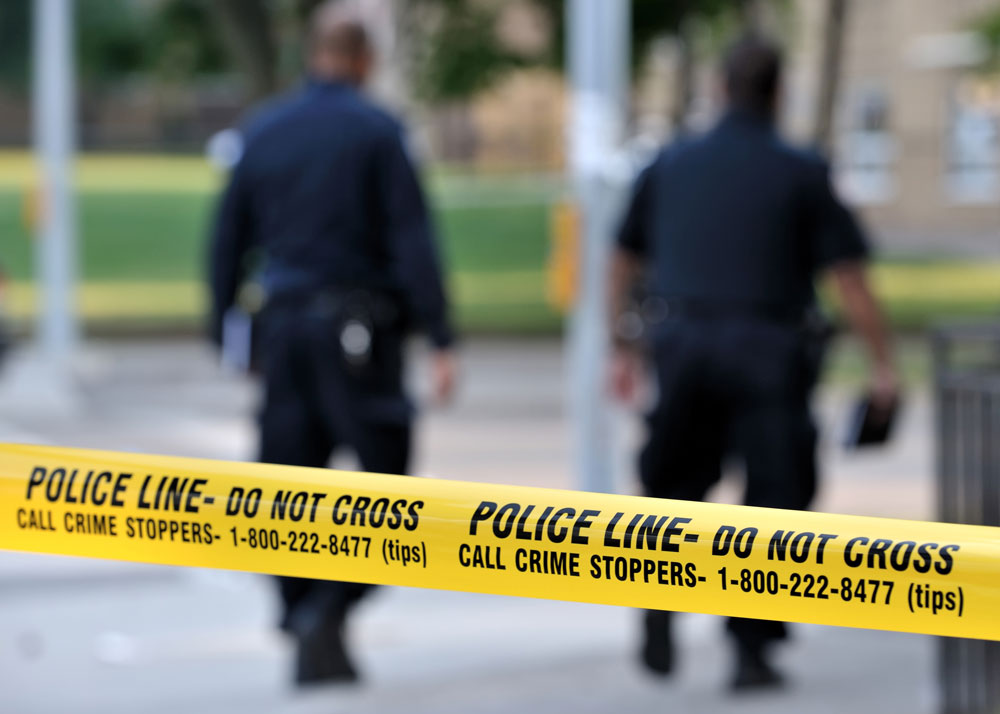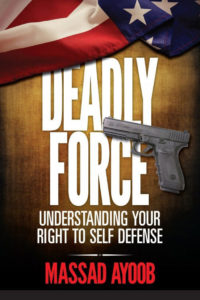

The author tackles 5th Amendment Rights wallet cards and several other factors to consider when giving a brief statement after a defensive shooting.
In my previous blog post, I wrote about why I recommend giving responding police officers a very brief statement after a self-defense shooting. This runs counter to common advice from attorneys, and in this series, we are discussing why the affirmative defense of self-defense makes it advisable to communicate a limited number of details to law enforcement after a self-defense incident.
In addition to telling responding police officers that you were attacked, it makes sense to point out any witnesses who saw the incident, or know of any evidence that is likely to be missed by the officers during their investigation. Witness statements are a double-edged sword, so we'll look at the pros and cons of witness statements in Part 3 [Coming soon – Editors]. First, though, there is one more thing you need to mention briefly to responding police.
Ask for Medical Help
Were you injured during the assault against you? If it was a physical altercation, as is true of most disparity of force situations, there will likely be evidence of that attack on your body. If you are aware of any pain as a result of the attack, ask for medical aid. It is likely that when attacked, you experienced an Adrenalin dump. One of the effects of Adrenalin is that it masks pain. You may have been injured, but don’t really feel it. Those injuries, even if you don’t feel any pain, are evidence of an attack. A bruise on the noggin may in fact be a concussion. You need to get checked out at the hospital, so ask the responding officers to call an ambulance.

Why tell police if you are hurt during the assault? Were you struck first? Is there a bruise on your neck where the assailant tried to strangle you? If you clam up, how do the police know about this exculpatory evidence? Having your lawyer tell the police three days after the event, “By the way, my client was assaulted,” isn’t going to do much good. It is best to turn the police detectives into your detectives, by letting them know of any injuries or other attacks to your person.
It is pretty tough for a prosecutor bent on putting you in prison to cross-examine medical records. You see, in the hierarchy of professionals, doctors trump lawyers, and so a doctor’s word is going to be believed before the ranting of a prosecutor who wants to see you convicted. If you just tell the cops you want your lawyer and fail to ask for medical aid, that evidence is lost.
You may be a rough, tough guy, “awe shucks, it’s just a flesh wound,” and it very well may be, but your injuries are also evidence of the attack. Are your clothes dirty, wet or muddy? It’s evidence that you were on the ground. Make sure the cops see, understand and document that fact. You see, no one knows what little piece of evidence will be the one that tips the scales of justice in your favor, so you cannot leave anything out. Guilty people don’t help the cops. Innocent people do.
“I Will Not Answer” Cards
A lot of organizations and many criminal defense attorneys give their clients a wallet card that is supposed to alleviate the problem of confessing to the elements of a crime, while preserving your rights against self-incrimination. These cards usually are printed with words to the effect of: “Officer, if I am handing you this card, I was just attacked and had to use justifiable force to defend myself. I am invoking my rights against self-incrimination, and wish to make no statements until my lawyer is present.”
Ahem…you have just handed the officer a damning piece of evidence that can be used against you in court. This card can be used to transform an intentional albeit self-defense shooting into a premeditated shooting. It can be used to turn a life sentence into the death penalty. Do you honestly think a jury would view this printed statement the same way they do the car insurance card in your wallet?
Even a rookie prosecutor trying his first case would likely be able to turn this against you, to say nothing of the picture an experienced prosecutor could paint around that detail. If you insist on presenting such a card to the responding officers, let’s profoundly hope the assailant lives, because the element of pre-meditation is not usually a factor in assault cases.
The argument for having this card in your wallet goes something like this: “Well, I am likely to be so upset and confused that I won’t be able to speak clearly, and might make a statement that could be used against me.” While that might be true, at least a misstatement due to stress could be explained in court by a competent expert. I don’t know of any competent legal expert who can explain why having this card in your wallet is a good idea.
To further address that concern, however, we should ponder what details you fear you may misstate. The fact that you were attacked? The fact that you felt your life was in danger? The fact that witnesses saw what happened? The fact that, having stated these few points, you now want your attorney, before giving a formal statement?
So what should you say? Some have recommended a one-size-fits all statement of, “Officer I was in fear for my life, so I shot. I want my lawyer present before I answer any further questions.” But as you know, one size does not fit all, and neither does one uniform statement to the police—or no statement at all—work effectively in all cases. Let me explain.
First, after an incident occurs, you have no idea when your attorney will arrive. Unless you happen to have an attorney who is a family member living nearby, or you somehow know the whereabouts of your attorney at all times and you know that he or she can show up at a moment’s notice, you may wait many hours, or even a day before your attorney is at your side. So, off you go to the jail in the back of the police car, to await the arrival of your attorney.
This time gap creates a huge problem when you have invoked your Miranda rights and told police you would not talk to them without an attorney present. Why? Because, as we discussed in my previous blog post, absent justification, shooting someone fulfills the elements of the crime of assault or murder, depending on what happened. With the elements of the crime satisfied, you will be arrested, and once arrested, you will be booked into jail. The eventual charges depend on whether the person lives or dies. Of course, the titles of the crimes vary from state to state, so for the purposes of this discussion, let’s limit the possibilities to aggravated assault or murder. For this example, let’s imagine you were out in public when you were forced to use deadly force in self-defense.
Now, put yourself in the role of the responding officers who received the “shots fired-man down” call. Arriving on the scene, the police know a crime has just been committed, because it is illegal to shoot someone without justification. They know it is their duty to arrest people committing crimes, and in fact, they get lots of “atta-boys” when they make good arrests, so they are likely going to arrest someone if they can. They have two potential candidates for arrest in this scenario: either the shooter (you), or the guy on the ground, who might have been committing a crime against you.
Once police make that arrest, they shift all their attention to proving that their arrest was a valid arrest. This means investigating the assault or murder of which you now stand accused, and not the underlying crime about which they have little or no knowledge. If this occurs, you are in for a long trip through the legal system.
“But wait!” you cry. “I’m innocent!” Yeah, I know you are innocent, you know you are innocent, and even God knows you are innocent, but at that critical juncture, no one has told the cops that you are innocent, and they had no information to make them believe you’re not just another guilty suspect. Why? Because, you—perhaps the only truly credible witness who is still alive—handed them a card indicating that you would not talk to them.
The one person who knew that a crime was being committed against you refused to talk to the cops! By immediately invoking your Miranda rights, you have just earned a trip to jail, and prosecution for assault or murder.
In Part 3, the author tackles the matter of witnesses—both pro and con. Click here for Part 1.

Next Step: Get your FREE Printable Target Pack
Enhance your shooting precision with our 62 MOA Targets, perfect for rifles and handguns. Crafted in collaboration with Storm Tactical for accuracy and versatility.
Subscribe to the Gun Digest email newsletter and get your downloadable target pack sent straight to your inbox. Stay updated with the latest firearms info in the industry.

![Best Concealed Carry Guns In 2025 [Field Tested] Wilson Combat EDC X9S 1](https://gundigest.com/wp-content/uploads/Wilson-Combat-EDC-X9S-1-324x160.jpg)


![Best 9mm Carbine: Affordable PCCs [Tested] Ruger Carbine Shooting](https://gundigest.com/wp-content/uploads/Ruger-Carbine-Shooting-100x70.jpg)
![Best AR-15: Top Options Available Today [Field Tested] Harrington and Richardson PSA XM177E2 feature](https://gundigest.com/wp-content/uploads/Harrington-and-Richardson-PSA-XM177E2-feature-100x70.jpg)

I strongly advocate carrying a card. This is not to hand to the officer, then it becomes part of the file. This is to organize your statement to 911 and the responding officer. I have had people make bad remarks under stress. In order to get an expert to explain it away the expert has to be accepted by the judge. This can be a problem. Then we still have the prosecutor demanding the jury believe the remark made closest to the event. I have seen a number of these cards. I have never heard of a case in which they were used against a defendant. I have heard of people who bungled their first statement and went to jail because of that.